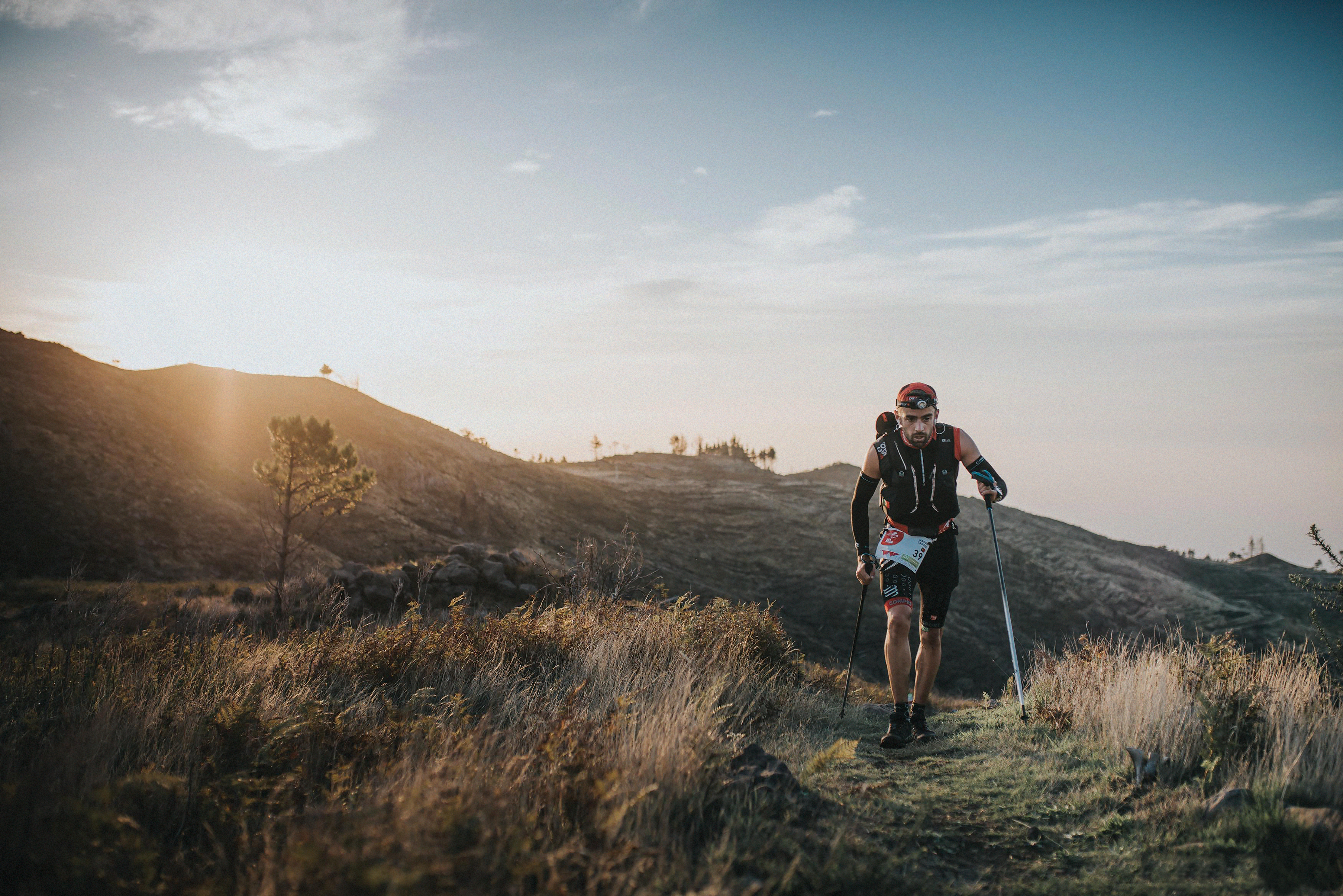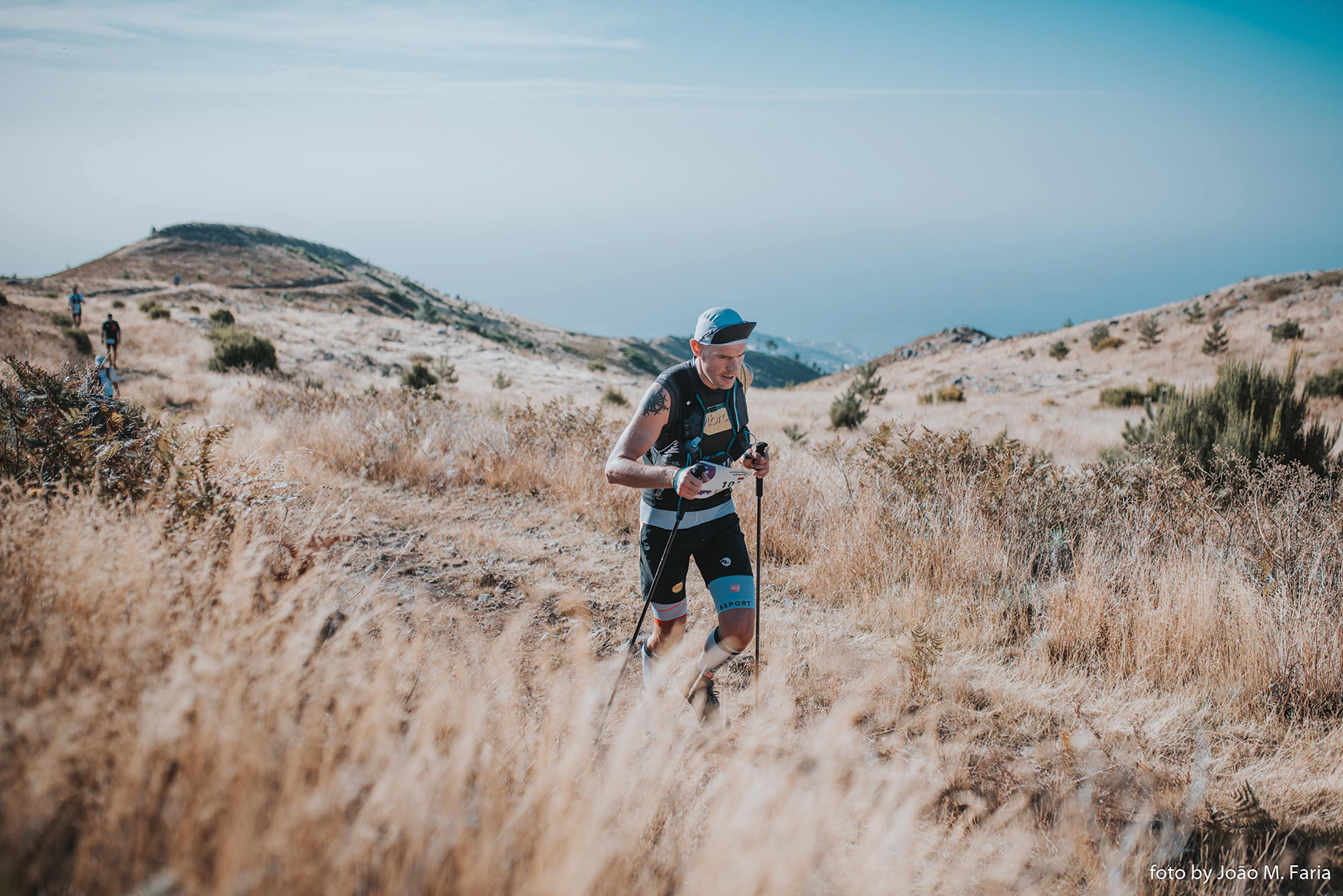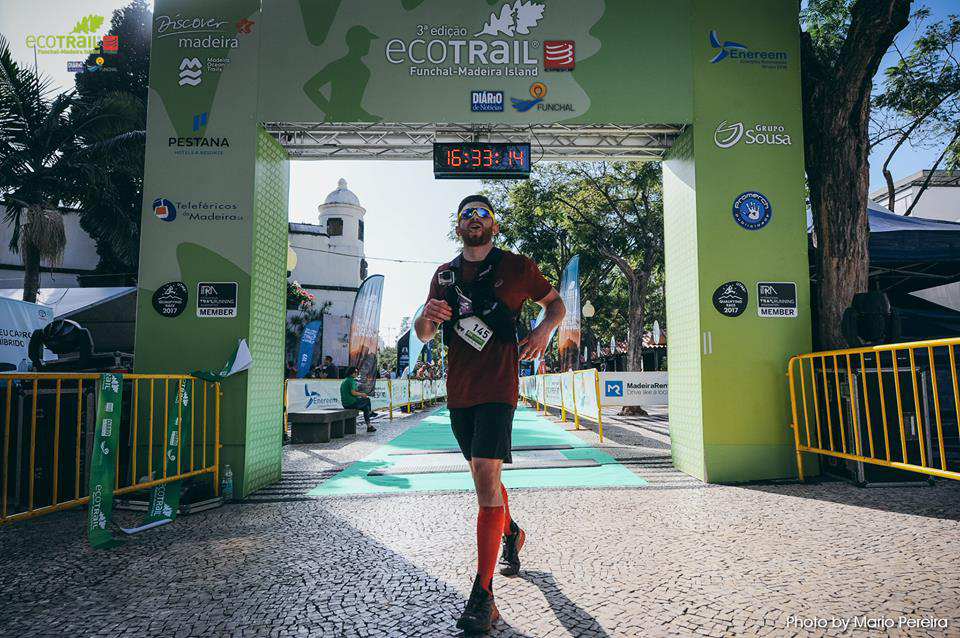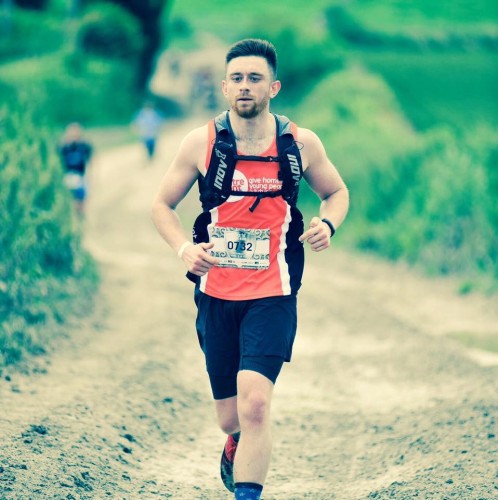
© JoÃo M.Faria
About a year ago, I watched a documentary on superstar footballer, chiseled athlete and very rich man Cristiano Ronaldo.
Using a lot of expensive-looking equipment and dimly-lit rooms, the programme sought to understand how Ronaldo honed the athleticism that has enabled him to rise to the pinnacle of his sport.
If only the producers could have delayed filming for a few years, I could have saved them considerable expense by telling them exactly how Ronaldo developed his physical prowess: he was raised on the island of Madeira, the hilliest place on Earth.
(Any questionable claims are to be viewed in light of Isaac running a very hard race.)
Self-delusion
Most of my pre-race prep has involved gawking at the course profile – which I don’t really understand, but for the fact it looks like a seismograph during a particularly aggressive earthquake – and convincing myself that 40K, hills or no hills, really isn’t that far.
It is.
The fact I’m joined by just 94 others – the size of a small parkrun – not only makes a last-place finish dangerously likely, it also poses a worrying question: what’s keeping people away?
Just five minutes in, the answer becomes clear: the course map isn’t lying.
Already reduced to a power hike as we climb along the backstreets of São Roque, the light of bobbing headtorches hinting at the steepness of the incline, I put all thoughts of a target time to one side; finishing will be a success.
Eventually, road makes way for trail as the narrow path continues its ascent into the mountains. Thirty minutes in and the rising sun reveals how high we’ve already climbed, as the lights of Funchal, the island’s capital, appear as specks in the middle distance.
False summit follows false summit, but eventually I reach the top of the first major climb, and have a chance to stretch my legs.
As I round a corner, I’m met with spectacular, sweeping views of the island, surrounded by the sun-soaked Atlantic Ocean.
I pause for dramatic effect – but mainly for a gulp water. Barely a drop comes out of my depleted bottle and I realise it’s not the hills I need to worry about…it’s the sun.
After five minutes of blissfully flat running, the mountain swallows the course it had just thrown up and down I head, back towards civilisation.
Anyone who says a variation of the phrase, “Downhills are the real killer,” is lying; slogging up a hill for an hour is undeniably harder than falling down it. But that’s not to say it’s easy…
Twenty minutes of heavy heel striking and a few graceful tumbles later, the densely covered forest trail makes way for neighborhood road once more.
Yappy dogs bark incessantly, as the morning sun – now fully risen – begins to prod at my neck.
Finally, the road evens out and I spot a gathering of runners up ahead. I stumble up to a table of what, in running terms, is the finest cuisine in the world: salty crisps, banana, watermelon and cheap chocolate. Heaven.
I refill both my bottles, plunge a few greedy hands into various snack bowls, mutter what I hope is the Portugese for “thank you” and hit the road again. Time for another climb.
As with the first, this is a long, slow hike but, to my surprise, I overtake a few whose legs have given up the ghost, and feel relatively ‘good’.
Running’s easy when you don’t have to run.
At the summit – or what I assume to be the summit – the real fun begins…

Peaks and troughs
If I’ve learned anything from the handful of ultras I’ve just about finished, it’s that your emotions will be as unstable as the ground you tread.
The elation of one minute can easily be replaced by an overwhelming desire to sit down and let the vultures pick you off the next. And four hours in, as I retreat to a rare patch of shade by a rock, I’m leaning towards the latter.
The verdent, forest landscape of an hour or so ago has made way for a vast expanse of lumpy, thorny terrain, and to my right a vertigo-inducing canyon brings to mind the organisers words in the pre-race briefing: “Watch where you’re going.”
Tired legs and vertigo are nothing, however, compared to dehydration. And I’m out of water.
The next couple of hours are a dazed plod up (UP!) to even higher ground. In my baffled state, I forgot that 1cm on the map was equivalent to about 200m, so even the slightest upward curve amounts to, by this point, a torturous climb.
Eventually, I reach the aid station that marks the true summit of the climb, and I’m thrilled, if a bit confused, to be met by cheers and rapturous applause by the volunteers.
“Keep it up!” says one man.
“You’re killing it!” says another.
It’s taken me just shy of six hours to cover 25 kilometres, but who am I to disagree? Maybe I am killing it.
My self-belief is short-lived, however, as a long-limbed chap comes out of nowhere and pips me to the last chunk of flapjack. T
heir adulation was reserved for him, the man who looks like he’s exerted himself as one might when taking a box of Christmas decorations down from the loft.
The man who’s competing in the 80K.
The man who’s just overtaken me, with a beaming smile on his face.
I take a seat in the shade of the tent and feel sorry for myself. It’s mostly a long downhill to the finish, but there’s still 15K to go. In this heat – and with these legs – that feels an awful long way.
I eat a chunk of banana, accept that I’m just going to have to get on with it, and plod off down the road.
Mixed emotions
The following 15 kilometres is ultrarunning in microcosm, as tiny, normally insignificant things flip emotions on their head.
At one point, exhausted and dehydrated, I stop by a fast-flowing levada – one of the many open aquaducts that supply the island with water – drop to my knees and dunk as much of my head in as possible.
At once, I’m refreshed, cool and full of life. I jump to my feet – as an arthritic 90-year-old might jump to theirs – and spend the next 10 minutes in a giddy state of euphoria as I hurtle down the mountain.
There are other moments, however, that are less positive.
Like when I reach the ocean and realise I’m expected to cross half a kilometre of rocky beach.
Or when, with 5K to go, the course takes an unexpected uphill trajectory once more, and it takes my finest bartering skills to convince a battered body and frazzled mind that quitting now would, in fact, be ludicrous.
An embarrassingly long time later, I’m shuffling through the centre of Funchal as restaurant diners and ambling tourists – sensing, by my third-degree sunburn, that I’ve been on my feet for quite a while – clap me over the line for an incredible top-100 finish.
Mountain marathons, it turns out, are quite tough (on account of the mountains).
I’ve run further, and I’ve run for longer, but as I slump on a shaded bench and inhale a bottle of water, I’m struggling to think of a time I’ve run anything harder.
Still, I should be good at football now.
For further information visit madeiraallyear.com

Isaac crosses the line, a broken man






